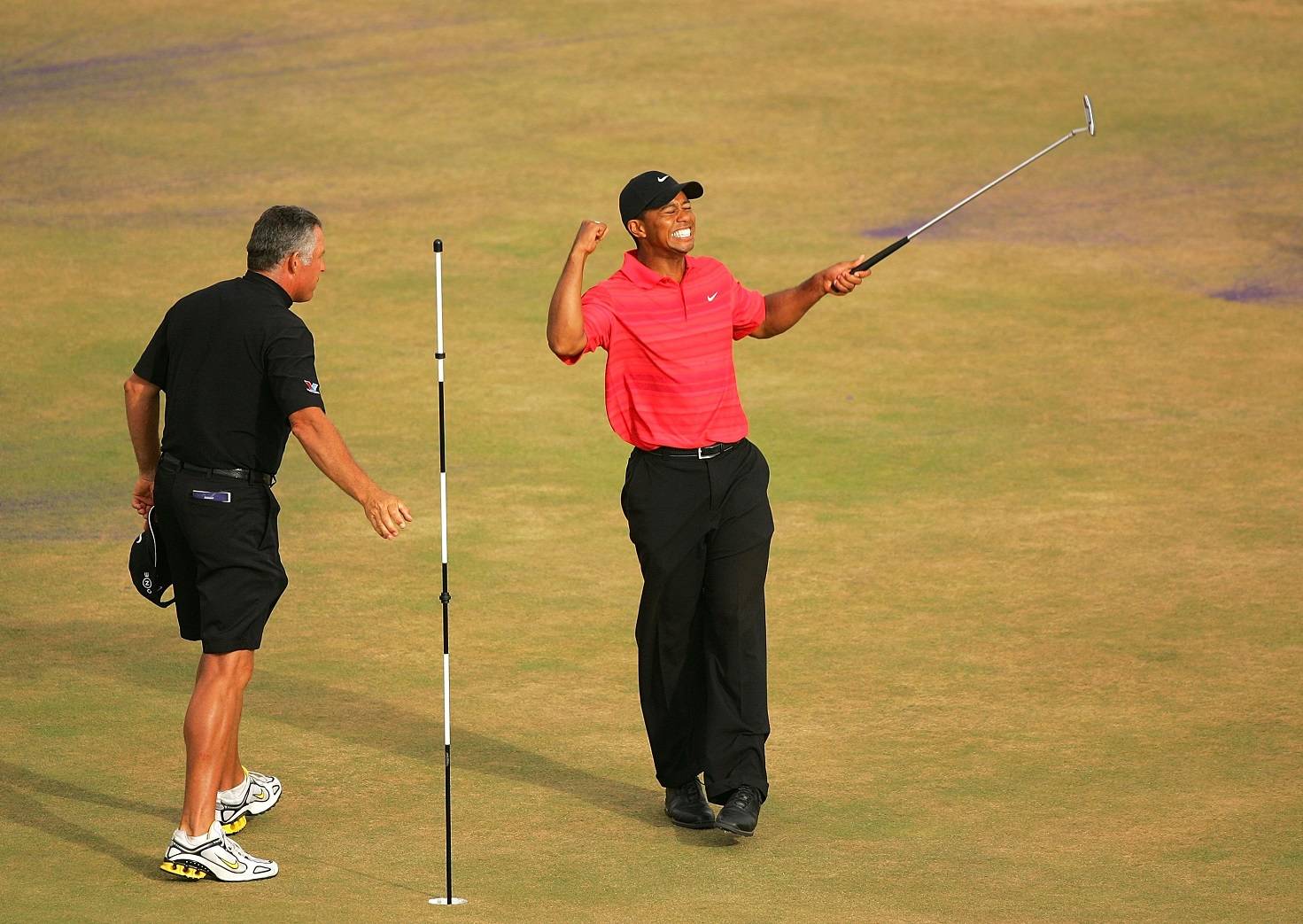Patrick Reed
Patrick Reed can remember his first time vividly

Patrick Reed can remember his first time vividly.
Standing along the fairway, the 15-year-old American watched his idol, Tiger Woods, pound irons off the Royal Liverpool tees on an afternoon that inspired a love affair with links golf.
Woods would go on to become Champion Golfer of the Year for the third time in 2006, negotiating a Hoylake course that was baked golden brown under the summer sun in conditions that, for many, were seldom seen.
The ball rolled on the fairway almost as far as it sailed through the air, meandering into bunkers and ravines that left many aghast.
But Woods thought his way round, resisting the urge to take out the big clubs and letting his creative side run wild.
He putted from the fairway instead of chipping. He fizzed the ball low instead of high and he used the contours of the course to manoeuvre the ball, instead of spin.
It was a masterclass; perhaps the best one Reed has ever studied.
“I remember standing and watching some tee shots. We were stood down the fairway near the landing spots and I remember seeing the ball hit the ground and almost take off faster than it had landed,” he said.
“That was eye-opening. I thought it was incredible to see that and then the different type of shots the guys were hitting. Back home, any kind of chips go up in the air and then land on the green.
“But to see some guys putting from way off greens and then using certain slopes and riding the ball on the ground is something I was shocked by.
“I had never seen anything like that before. It was something that I know fits into my game, I love being creative and so I liked it from the get go.”

As a kid from Texas and schooled in Louisiana, Reed, like many Americans, had only ever seen The Open through his TV screen.
But he was always destined for golf’s oldest major. A protégé like few others, Reed played golf in trousers from the age of ten, while his friends wore shorts under the intense Texas heat. Even then, he said he was getting ready for life on the PGA Tour.
By the time he reached university in 2008, the 2018 Masters champion was in a class of his own. He had already led University High School to Louisiana State Championships in 2006 and 2007, while he won All-American honours three years running.
He went to the University of Georgia before moving on to Augusta State University – just down the road from a certain Augusta National.
While there, Reed inspired them to the NCAA Division 1 title in 2010 and 2011. His reputation was rising. But to those on this side of the Atlantic, it was already sky-high.
The purpose of Reed’s trip to England in 2006 was not only to see Woods and watch The Open. He came to play.
The Junior Open is contested by the world’s best under-16 male and female golfers and is always played at a course near to that year’s Open.
In 2006, it headed for Heswall, not far from Royal Liverpool, and Reed adjusted magnificently by becoming champion – beating a certain Tommy Fleetwood among others.
Days later, he went to watch Woods.
"I always thought it would be fun because I love to create shots and hit the funny things," he later told ESPN.
"At home, we can't do that. It's too soft. So you can't hit the stinger 2-iron and let it run, or the low hook chip shot and watch it bounce up a hill and kind of trickle over.
“Those aren't things we can do at home. It's more thick rough, take the ball in the air and try to stop it. So I feel like my creative side has been able to come out."
Reed made his Open debut in 2014, missing the cut at, of all places, Royal Liverpool. But he quickly got the hang of it.
A year later at St Andrews, he went on to finish T20 and improved that to T12 at Royal Troon in 2016.
It might be on the other side of the pond where Reed has generated the biggest waves, as a three-time Ryder Cup competitor and a Masters champion.
But his biggest dream is to become Champion Golfer of the Year.
“I want to win them all. My goal is to have the career grand slam at some point in my life,” he said.
“There is nothing better than the Claret Jug, though. I would love to take it home. It means a lot to me.
“The history behind it and winning at a place that is so different from home would mean a lot.
“That would mean you have full control of your game. It basically means you can play on and win on anything.”













